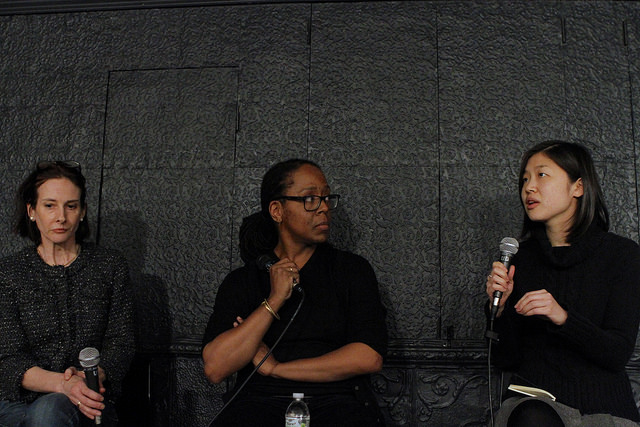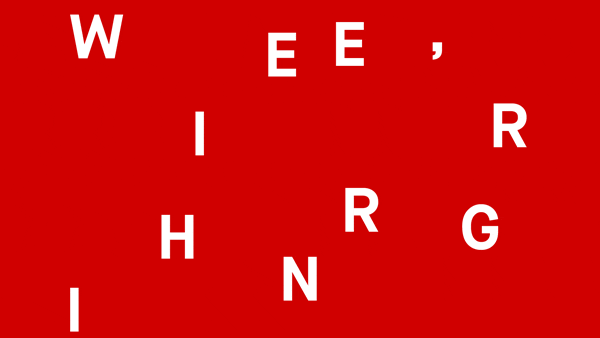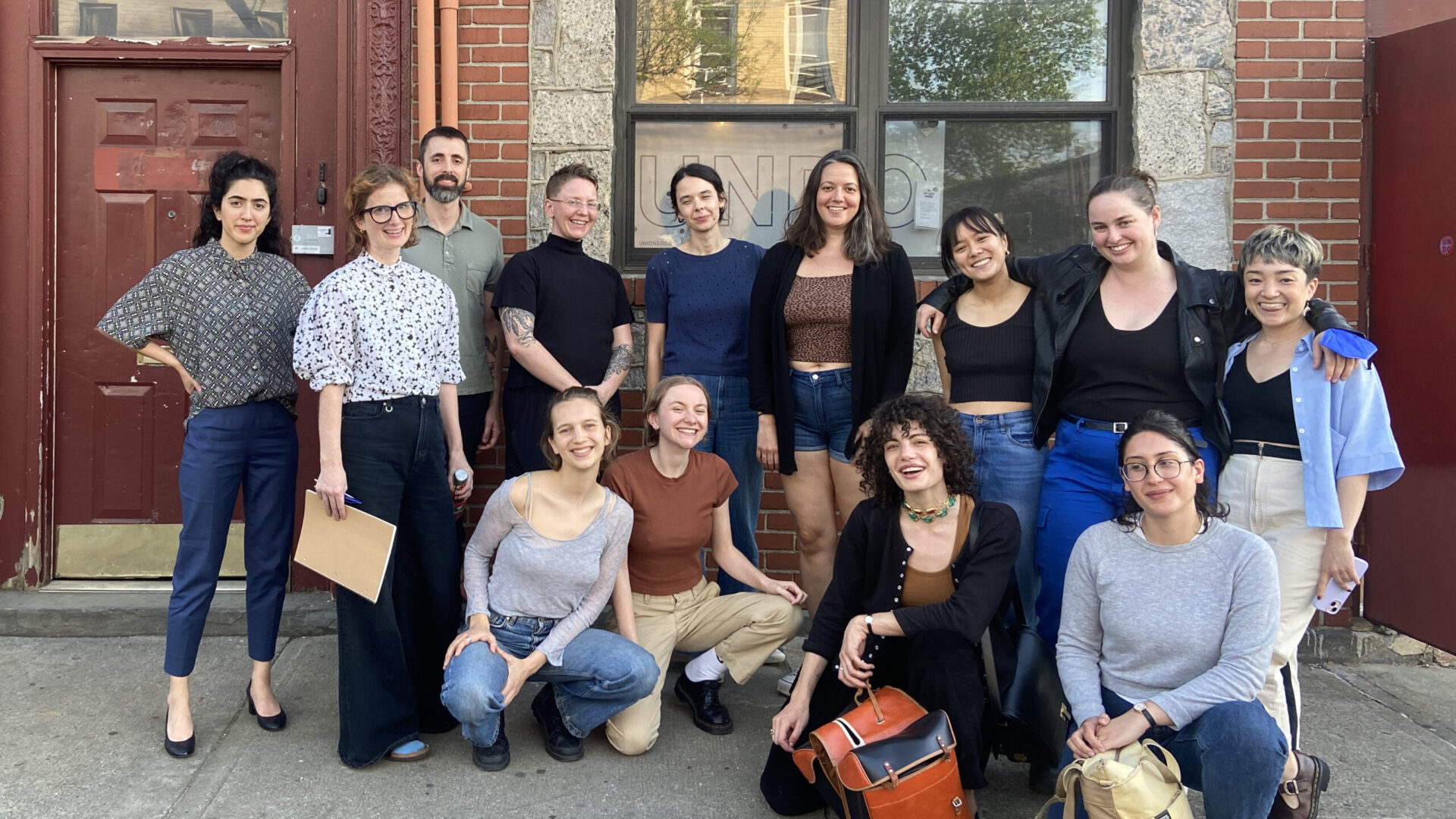RG: It makes perfect sense. Absolute perfect sense. Not to get too maudlin or personal, but I had a very difficult relationship with my father. Really hard. He was a great man. He was a passionate man, as you can hear. But, he was passionate in both loving and hating. It often surprises me, when I listen to the tapes, that he isn’t turning to slug that mayor in the face. That’s really how he felt. This stuff enraged him. But, for me, growing up, I was proud of him. I hope he knew it. But, it wasn’t until after he died that I could address his work and who he was. It was very difficult for me. My name is Regan. I was named, of course, after one of the bad daughters in King Lear. My parents made wonderful fun of that for my whole life. But, I emailed my friend Jonathan about this event the other day. He said, “Oh, you are so much more Cordelia these days than you are Regan.” It’s true. Then I was at dinner with a friend, Emily, and she knows every rise and fall of the great Regan Good and Paul Good fights throughout the decades. I said to her, “I love my dad,” and she said, “Oh, I know. I can tell.” It’s really a way to be with my father, the best part of my father.
DB: What do you do with the rest of it?
RG: What do you mean?
DB: Well, when I had to find you, to get permission, your bio was different. I knew you were a poet, I knew you were a writer. But, your bio was very different, you were doing different things than you’re doing now. I’m curious about how you’re coming to write a book about him.
RG: Oh. Well, I’ve really been writing this book for about ten years. I have to tell you, I’m extremely slow. Everything I do takes a long time. But, I think what you’re referring to is that I was working in finance?
DB: No, I actually found you through your publisher. You published a book of poetry?
RG: Ugly Duckling Press? Oh my God. That’s so weird. Thank God they published it.
DB: Yeah, that was it. Thankfully, your publisher was gracious enough to pass on an email from me. You were doing different things.
RG: I was trying to make a living. When I say that my father’s work is really the heart of the book, it’s because, in the ‘70s, Westport was a harbor for artists and writers. But, money wasn’t what money is today. I was really encouraged to do things without thinking about money. Then, the ‘80s came. The feeling in our household during those times was one of unrelenting darkness. I’ve really struggled with staying true to my poetic self, my true interests, while feeding myself. My parents said, ‘Don’t worry about money,’ but you have to at some point. Did that answer the question?
DB: That’ll do it.
LP: I have a question about the elaborate process by which you found Regan. I’m curious about the other end, Regan’s perspective. What was it like to grant access to Deanna?

RG: It was a dream come true, really. I want these tapes out there. I want my father alive, goddamnit. But, if he can’t be, I want this work out there. That’s why I donated it. It can’t just sit in a box under my bed, that’s ridiculous.
LP: Are you open to engaging the rest of the audience?
DB & RG: Of course.
Audience Member 1: I’m curious, when you donated the tapes, were you aware of Emory’s policy? Did you know that access had to be granted?
RG: Honestly, I think I was so spaced-out during that period. If they told me, I probably said, ‘sure, just have them call me.’ I don’t remember that being a part of the donation process.
DB : I have to throw this in, people make things up as they go along. Librarians make things up as they go along. Librarians tend to size you up and decide whether or not you can handle it, whether or not you deserve access. It may not be an official policy. It might have been a policy put in place for me.
Audience Member 1: Do you have advice for people contending with that?
DB: Yes and no. Emory was an up-the-middle kind of experience. I try not to infuriate librarians. I try to keep them in a sweet spot, whatever that may be. For the Emory experience, I just decided to backtrack, to see if I could find Regan. For Philadelphia, I just happened to land on a badass librarian. He [Nick Okrent] was like, ‘yeah, I got you.’ Sometimes it’s fluke. This sounds terribly trite, but you have to believe in the story. You’ve gotta believe enough to keep going at it. I have to admit, I was thinking of a ‘Plan B’ to get around them, anyhow. They give you the recordings, anyhow. They give it to you, but there’s a whole series of issues related to copyright clearance.
RG : It’s the same mess that I’m in with the images that I want to give you. These films might actually link up with some of the audio.
DB: I was gonna thieve, and do it anyhow.
RG: I would’ve been totally happy with that.
DB: It would change the arc of distribution. There would be only so many places I could go with it. At the time, I was thinking, ‘I’m in Canada, who’s gonna know?’ I hope this doesn’t get streamed. Well, that was the plan. But, the kind of work that it is, it’s not like I was ever gonna go to broadcast. I knew there was some level of safety. Even if I did hijack it, I could do it the gallery space, or at experimental festivals, and get away with it. My ‘Plan B’ was to make due with the limited access. I would’ve had to make due with the limited opportunities to show the work.
LP: I also want to say, for the exhibition I curated, one of the first lines in the text is, ‘Searching for the things that are in the margins of recorded history.’ I’m feeling very privileged to have brought some of that into a place where we can share it and listen to it. So, thank you, for being a part of this project.





